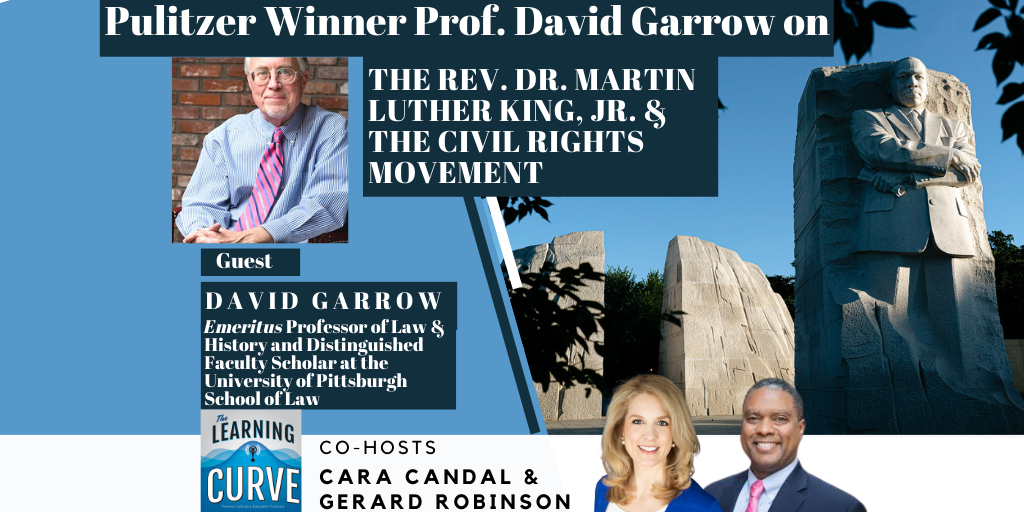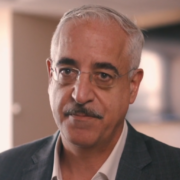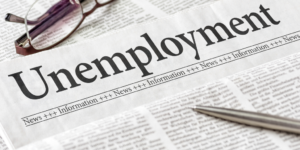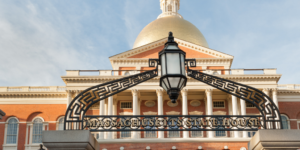Our 2021 annual report to you— our donors and friends— carries two clear messages.
First, the pandemic has not deterred Pioneer from significant victories in our strategic focus areas— education, healthcare, and economic opportunity.
Nationally, Pioneer followed up on the U.S. Supreme Court’s June 2020 Espinoza decision by working on the ground with local partners in 10 states. All 10 passed laws expanding or establishing new educational choice programs. Pioneer’s life sciences policy team was essential in the U.S. Health and Human Services Secretary’s recommendation to avoid discriminating against the elderly and disabled when it comes to access to treatments.
In Massachusetts, Pioneer’s efforts yielded a state settlement with Catholic and Jewish Day schools, new investment in vocational-technical schools, permanent telehealth flexibility, removal of bureaucratic barriers for thousands of physicians, modernization of sales-tax collections, and more.
Pioneer’s government transparency work led to improvements in the state’s reporting on Covid cases and deaths in long-term care facilities. Importantly, we provided thought leadership on the constitutional tax amendment that will be on the ballot in November 2022.
Second, under our five-year strategic plan, we are transforming Pioneer, making big institutional changes to enhance Pioneer’s impact locally and nationally in 2022 and beyond. Understanding the challenges ahead, we are redefining the think tank model, developing new capacities, including the creation of PioneerLegal, a new 501(c)(3) public interest law firm focusing on education, government transparency, and economic freedom.
More institutional change is underway. We are
- Growing our commitment to K–12 education with a new focus on civics and democracy building;
- Expanding our communications team to double our audience reach and engage students virtually and in- person; and
- Recruiting new talent to drive “idea generation” and further strengthen the Institute’s board and
This institutional capacity-building will make Pioneer more effective and better positioned to drive strategic policy improvements in our priority areas.
In 2022 and beyond we will see continued growth across America in our education and life sciences initiatives, areas where the Institute has a comparative advantage.
None of this work or impact is possible without you. We are grateful for your trust and investment. We are excited by the opportunities for impact that our new capacities make possible. We are building for impact now and in the future, and we ask for your continued – and we hope, enhanced – generosity in 2022.
– Jim Stergios and Adam Portnoy
 https://pioneerinstitute.org/wp-content/uploads/TLC-Garrow-Canva-01-17-23.png
512
1024
Editorial Staff
https://pioneerinstitute.org/wp-content/uploads/logo_440x96.png
Editorial Staff2023-01-18 10:14:172023-08-26 09:10:47Pulitzer Winner Prof. David Garrow on the Rev. Dr. Martin Luther King, Jr. and the Civil Rights Movement
https://pioneerinstitute.org/wp-content/uploads/TLC-Garrow-Canva-01-17-23.png
512
1024
Editorial Staff
https://pioneerinstitute.org/wp-content/uploads/logo_440x96.png
Editorial Staff2023-01-18 10:14:172023-08-26 09:10:47Pulitzer Winner Prof. David Garrow on the Rev. Dr. Martin Luther King, Jr. and the Civil Rights Movement
















